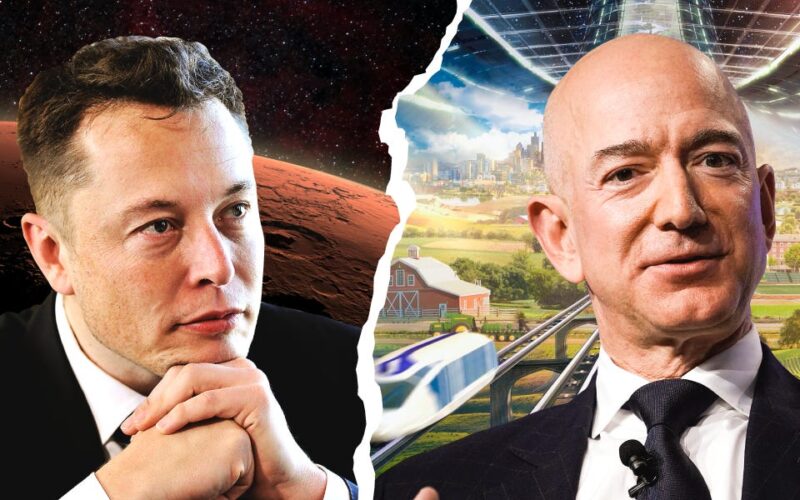Jeff Bezos’ rocket company, Blue Origin, recently filed concerns to the FAA about Elon Musk’s SpaceX, requesting that Starship’s launch operations be potentially limited over environmental impact concerns.
The filing focused on the FAA’s intentions to prepare an Environmental Impact Statement (EIS) to evaluate the potential environmental impacts of issuing SpaceX a commercial launch license for its Starship-Super Heavy mega-rocket.
The SpaceX launch system is a work in progress. Consisting of the Starship spacecraft and the Super Heavy booster and standing taller than the Statue of Liberty, the system has only flown four times, with just two of those attempts making it to space.
Yet these few launches have already indicated some environmental impacts — once creating the heat and pressure equivalent of a volcanic eruption, according to a physicist, and another time raining soil and sand down on a nearby town.
Once Starship-Super Heavy is fully developed and flying to orbit, though, it will be the largest and most powerful launch system on Earth.
SpaceX via X
According to the filing, the Super Heavy booster can contain up to an “unprecedented” 5,200 metric tons of liquid methane for its propulsion — which Blue Origin said may result in “qualified distances for safety margins that potentially overlap the operational sites of other companies, the government, and the public.”
Citing concern over Starship having a “greater environmental impact than any other launch system” at Kennedy Space Center, Blue Origin asked the FAA to consider capping the rate of the Super Heavy “launch, landing, and other operations […] to a number that has minimal impact on the local environment.” The filing did not specify what that number should be.
Blue Origin wrote in the filing that it’s concerned because it also conducts operations nearby: the company occupies a large manufacturing site at Kennedy Space Center, where SpaceX’s leased Launch Complex 39A for its Starship operations is located. It also employs multiple properties “all within the vicinity ” of SpaceX’s proposed Super Heavy booster launches, Blue Origin said.
Blue Origin’s filing highlighted the potential risks to the safety of personnel and assets on nearby sites, such as explosions, debris, blast and sonic boom overpressure, and air toxins.
SpaceX plans to launch 44 Starship-Super Heavy missions per year under a NASA lease, Blue Origin wrote in the filing.
Indeed, SpaceX has earned a reputation for regular launches. The company accounted for nearly half of the world’s orbital launches last year. It launched its Falcon 9 rocket 91 times in 2023, breaking its previous record by 30 launches, CNBC reported.
In addition to capping the number of launches, Blue Origin suggested other mitigations, including adding more infrastructure to reduce the risk to other nearby launch providers and requiring SpaceX to compensate for any losses caused by their operations.
Musk responded to the complaint on X by writing “Sue Origin,” adding another swipe at Bezos to their 15 years of public feuding.
The Tesla CEO later added, “An obviously disingenuous response. Not cool of them to try (for the third time) to impede SpaceX’s progress by lawfare.”
Neither SpaceX nor Blue Origin immediately responded to Business Insider’s requests for comments ahead of publication.
After being asked to decipher Musk’s initial message, xAI chatbot Grok wrote that his post “appears to be a tongue-in-cheek comment” about Blue Origin’s “history of resorting to legal action rather than competing fairly in the marketplace.”
The Tesla CEO simply replied with a bull’s-eye emoji.
Source link
lol

